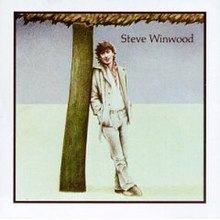
The Bridge is the tenth studio album by American singer-songwriter Billy Joel, released on July 25, 1986. It was Joel's last studio album produced by Phil Ramone as well as the last to feature Joel's long-time bassist Doug Stegmeyer and rhythm guitarist Russell Javors. The album yielded several successful singles, including "A Matter of Trust", "Modern Woman", and "This Is the Time".

I Can't Stand Still is the debut solo studio album by American musician Don Henley, drummer and co-lead vocalist for the Eagles. It was released in August 1982 by Asylum Records. Henley, Danny Kortchmar and Greg Ladanyi produced the album. I Can't Stand Still achieved gold status, and peaked at No. 24 on the Billboard 200 and at the same position on the UK Albums Chart. Three singles were released from the album, including the hit "Dirty Laundry", which peaked at No. 3 on the Billboard Hot 100 and became Henley's best-selling single. The title track "I Can't Stand Still" reached No. 48 and the track "Johnny Can't Read" reached No. 42 on the charts.

John Barleycorn Must Die is the fourth studio album by English rock band Traffic, released in 1970 as Island ILPS 9116 in the United Kingdom, United Artists UAS 5504 in the United States, and as Polydor 2334 013 in Canada. It marked the band's comeback after a brief disbandment, and peaked at number 5 on the Billboard Top LPs chart, making it their highest-charting album in the US, and has been certified a gold record by the RIAA. In addition, the single "Empty Pages" spent eight weeks on the Billboard Hot 100, peaking at number 74. The album was marginally less successful in the UK, reaching number 11 on the UK Albums Chart.
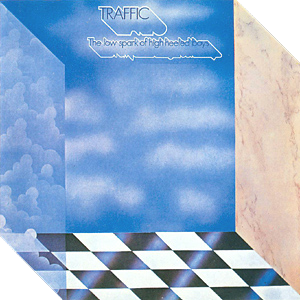
The Low Spark of High Heeled Boys is the fifth studio album by English rock band Traffic, released in 1971. The album was Traffic's most successful in the United States, reaching number 7 on the Billboard Top LPs chart and becoming their only platinum-certified album there, indicating sales in excess of one million. However, it failed to chart in the United Kingdom. The album features the minor hit "Rock & Roll Stew" and the title track, which received heavy FM airplay.

Shoot Out at the Fantasy Factory is the sixth studio album by English rock band Traffic released in 1973. It followed their 1971 album The Low Spark of High Heeled Boys and contained five songs. Shoot Out, while achieving poorer reviews than its predecessor, did reach number six on the Billboard Pop Albums chart, one space higher than Low Spark had peaked in 1972. Like its predecessor, the original jacket for the Shoot Out LP had its top right and bottom left corners clipped. The album was remastered for CD in 2003.

When the Eagle Flies is the seventh studio album by English rock band Traffic, released in 1974. The album featured Jim Capaldi, Steve Winwood and Chris Wood, with Rosko Gee on bass guitar. Percussionist Rebop Kwaku Baah was fired prior to the album's completion, but two tracks feature his playing. Winwood plays a broader variety of keyboard instruments than most previous Traffic albums, adding Moog to their repertoire. This was the last Traffic album for 20 years, when Winwood and Capaldi reunited for Far from Home in 1994.

Welcome to the Canteen is the first live album by English rock band Traffic. It was recorded live at Fairfield Halls, Croydon and the Oz Benefit Concert in the canteen of the Polytechnic of Central London London, on 3 July 1971 and released in September of that year. It was recorded during Dave Mason's third stint with the band, which lasted only six performances.

On The Road is the second live album by English rock band Traffic, released in 1973. Recorded live in Germany, it features the Shoot Out at the Fantasy Factory band, with the Muscle Shoals Rhythm Section of keyboardist Barry Beckett, bassist David Hood, and drummer Roger Hawkins.

Junction Seven is the seventh solo studio album by English musician and songwriter Steve Winwood, released in June 1997. The album broke the Top 40 in the UK but did not sell well in the US, and Winwood took a six-year break from making solo albums. This album was co-produced with Narada Michael Walden, while Winwood's wife Eugenia co-wrote several songs. Des'ree provided vocals on 'Plenty Lovin'.
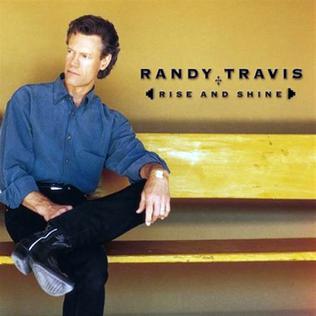
Rise and Shine is the fourteenth studio album by American country music artist Randy Travis. It was released on October 15, 2002 by Word Records. It was produced the single "Three Wooden Crosses", which in 2003 became his first Number One single on the Hot Country Singles & Tracks chart since 1994's "Whisper My Name". The only other single release from this album was "Pray for the Fish", which peaked at #48.

About Time is the eighth solo studio album by Steve Winwood, released in 2003. It was his first album since 1997 and it featured a return to a musical style more in line with his earlier work with Traffic. That style is emphasized in the three piece band lineup: Hammond B-3 organ, guitar and drums, occasionally joined by saxophone, flute, conga drums and miscellaneous percussion characteristic of the Traffic sound from 1971-1974.

Roll with It is the fifth solo studio album by English blue-eyed soul artist Steve Winwood, released on 20 June 1988. It became one of Winwood's most commercially successful albums, reaching number four on the UK Albums Chart and number one on the US Billboard 200, and has sold over three million copies.
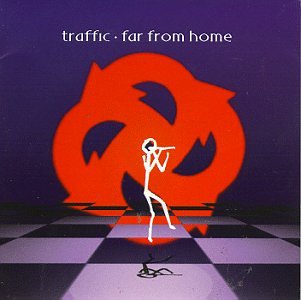
Far from Home is the eighth and final studio album by the rock band Traffic. The project began as a revival of the writing collaboration between Steve Winwood and Jim Capaldi, but soon blossomed into the first Traffic project since 1974.
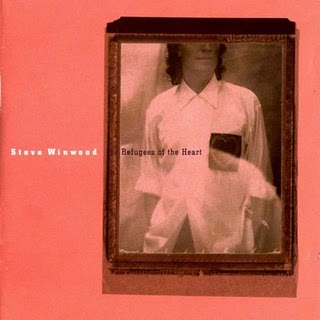
Refugees of the Heart is the sixth solo studio album by Steve Winwood, released in 1990. The album contained the hit single, "One and Only Man", which topped the Mainstream Rock Tracks chart, was #18 at Billboard's Hot 100 and saw the return of former Traffic bandmate Jim Capaldi to Winwood's songwriting team. A Traffic reunion followed in 1994, and because of that collaboration, Winwood would not record another solo album until late 1997. "I Will Be Here" and "Another Deal Goes Down" were also released as singles.

Best of Traffic is a compilation album by the band Traffic, released in 1969.

Oh How We Danced is the debut studio album by the British musician Jim Capaldi. The album was recorded while Traffic was on hiatus due to Steve Winwood's struggles with peritonitis and was released by Island Records in 1972. Like his contemporary albums with Traffic, it was unsuccessful in his native United Kingdom but did better in the United States, reaching number 82 in the Billboard 200 chart and producing the hit single "Eve", which reached number 91 in the Billboard Hot 100.

Whale Meat Again is the second studio album by the British musician Jim Capaldi, released by Island Records in 1974. Like his first solo album, it failed commercially in his native United Kingdom but did better in the United States. With help from the opening track, "It's All Right", which spent seven weeks in the Billboard Hot 100 and peaked at number 55, the album reached number 191 in the Billboard 200.
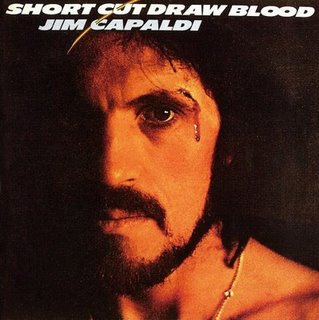
Short Cut Draw Blood is the third studio album by the British musician Jim Capaldi, released by Island Records in 1975. It marked a major turning point in Capaldi's career: it was his first album recorded after the breakup of Traffic, and more importantly it was his commercial breakthrough. While Capaldi's first two solo albums had been moderately successful in the United States, Short Cut Draw Blood entered the charts in several other countries for the first time. This was particularly evident in his native United Kingdom; the single "It's All Up to You" at number 27, released a year before the album, became his first top 40 hit there, only to be overshadowed the following year by his cover of "Love Hurts", which went all the way to number 4.

Fierce Heart is the eighth solo album by British musician Jim Capaldi. The album has a far more synth-heavy approach than any of his previous albums, though the songs are mostly in the same aggressive rock/pop vein that Capaldi had long been associated with. This synth-heavy pop sound was exactly what 1980s audiences were looking for, and the songs "That's Love" which broke the top 40 in the US at number 28, and "Living on the Edge" at number 75, became hit singles. The album itself reached number 91 on the Billboard 200.

Old Sock is the nineteenth solo studio album by Eric Clapton. It includes the two new compositions "Gotta Get Over" and "Every Little Thing", as well as covers. Several notable musicians were involved in the album, including Steve Winwood, JJ Cale and Paul McCartney.
